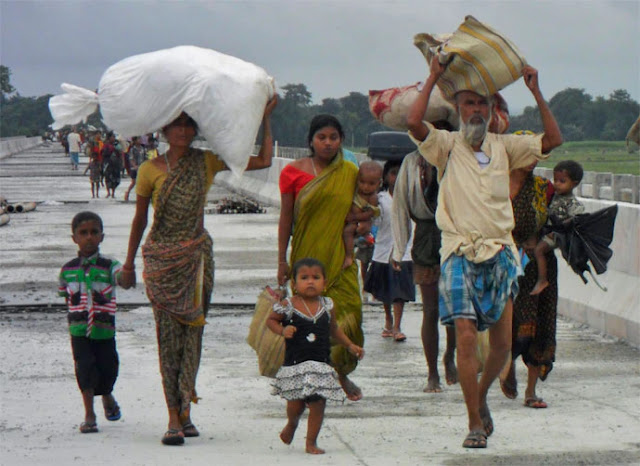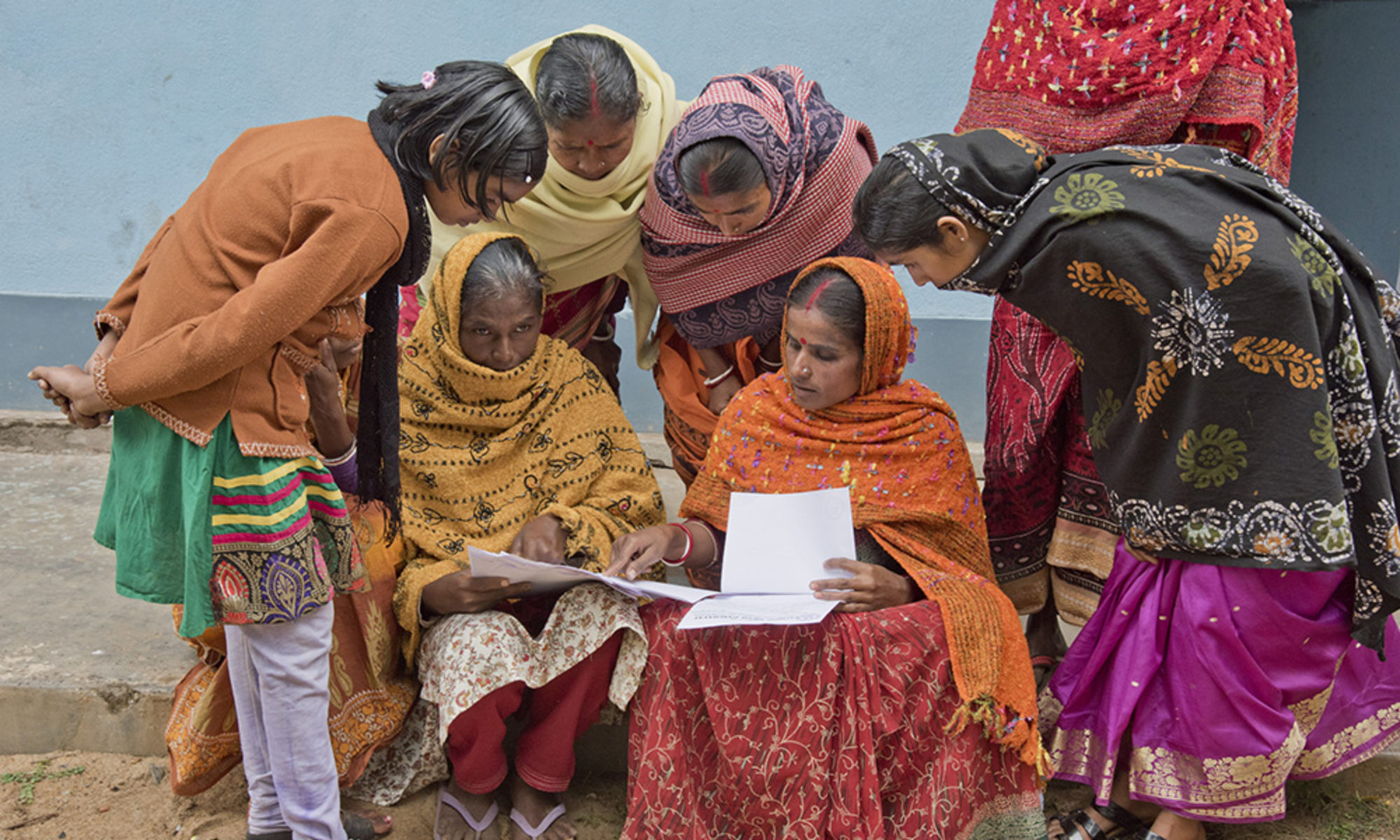on April 11, 2023 by Prof. Mohan Dutta

The figure of the “Miya” forms the infrastructure of the anti-Muslim hate in Assam, the Northeast frontier of India.
In this essay, I will argue that the genocidal hate reflected in anti-Muslim violence and anti-Muslim public policies in Assam is mirrored in the ongoing production of the “Muslim other” in the infrastructure of the fascist National Register for Citizens (NRC) carried out by the Hindutva regime.
The rhetorical trope of the “Miya” depicts the power of cultural discourse in organizing violence through the turn to a monolithic cultural essence based on exclusion.
The construction of the “Miya” as the Muslim other lies at the core of the cultural chauvinism that has historically mobilized the middle-class, upper-caste cultural nationalist movement in Assam. Elsewhere, I have described the communicative tools that actively produce “the other” to organize cultural nationalism, constructing the nation on the basis of a monolithic cultural essence.
The term “Miya” is rife with the racist fear of the Muslim illegal immigrant taking over Assamese land and culture, mobilized to build a movement of cultural nationalism. It is often used to describe Muslim migrants from the Myemensingh region of neighboring Bangladesh (which was part of undivided Bengal) who migrated in the early twentieth century, encouraged and in many instances forcibly moved by the British imperialists, settling in the riverine islands of the Brahmaputra river.
The activist-scholar Sooraj Gogoi powerfully describes the ways in which the cultural revivalism that shaped the Assamese nationalism underlying the Assam movement in the 1980s created the discursive climate of fear and hate around the illegal Muslim immigrant, classified as the foreigner. He further describes the role of middle-class caste Assamese cultural workers, intellectuals including academics, poets, lyricists, performers etc. in constructing the discursive ecosystem of cultural nationalism.
The basis of the cultural turn underlying the Assam movement draws on an Assamese essence depicted in linguistic and cultural artifacts. Simultaneously, this cultural turn as cultural nationalism is deployed toward the production of hate through the circulation of the image of the foreigner. Through songs, poems, and graffiti, the foreigner is crafted as a perpetual threat to the cultural essence, as a danger to a monolithic Assamese cultural identity.
This discursive climate of hate is financialized by the political class, turning hate into the basis for mobilizing the movement and political participation. It is this ecosystem of hate seeded by caste Assamese political-cultural society that mobilized largely tribal and oppressed caste communities in participating in the violence at Nellie that resulted in the death of 3,300 Muslims. The Nellie massacre remains one of the most violent pogroms since World War 2.
The xenophobic anti-Muslim violence scripted into mainstream caste Assamese society as cultural nationalism flows seamlessly into the Islamophobic fascist laboratory of Hindutva.
The chauvinism of Assamese cultural nationalism feeds directly into the cultural nationalism of the Bharatiya Janata Party (BJP). The threat of the illegal foreigner in Assam is mobilized into the concept of the registry, crystallized in the National Register for Citizens (NRC), sending Muslims into detention centers, stripped of the “right to have rights.” The violence of the NRC process, marked by the haphazard implementation of documentation, the arbitrariness of the Assam foreigners tribunal, the disenfranchisement of Muslims who have lived in India across generations through incarceration in detention centers (locally referred to as concentration camps), and the absence of access to juridical processes, have resulted in plethora of health challenges, including challenges to mental health and suicides. In a period of five years between 2015 and 2020, between 38 and 42 individuals committed suicide in Assam in the context of the revocation of their own or a relative’s citizenship status.
The discursive construction of Muslims as foreign nationals is built on the ideology of border-making that catalyzes the material construction of the border as the basis for othering. This process of othering Muslims as the basis of cultural nationalism in Assam reflects the organizing role of cultural essence as the organizing ideology that drives hate, violence, and fascist politics.
Link to the blogpost on: https://culture-centered.blogspot.com/2023/04/cultural-essence-cultural-nationalism.html
Image source via google search: https://www.reuters.com/article/us-india-violence-idUSBRE86N1CE20120724
#CAREMasseyNZ #CAREDirectorsBlog #CulturalEssence #CulturalNationalism #Miya #AntiMuslim #Hate #India #NationalRegisterForCitizens #NRC #SoorajGogoi #MasseyUni #Aotearoa #NewZealand

